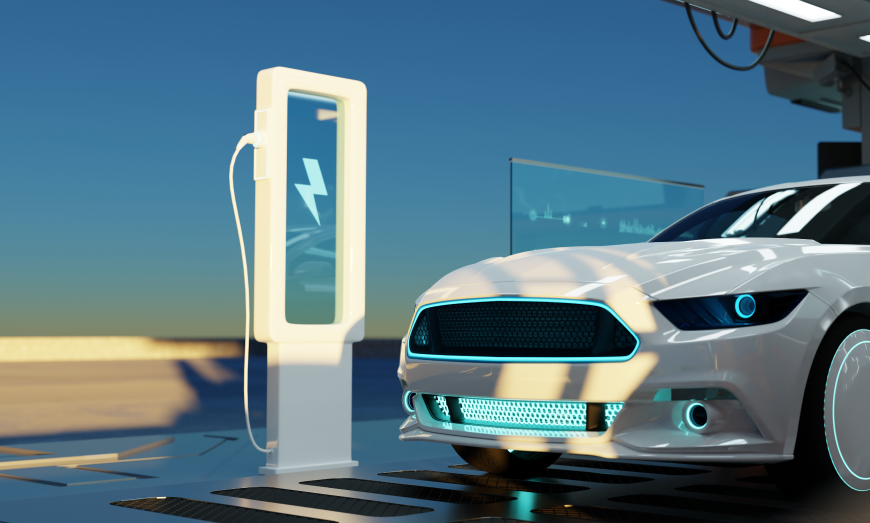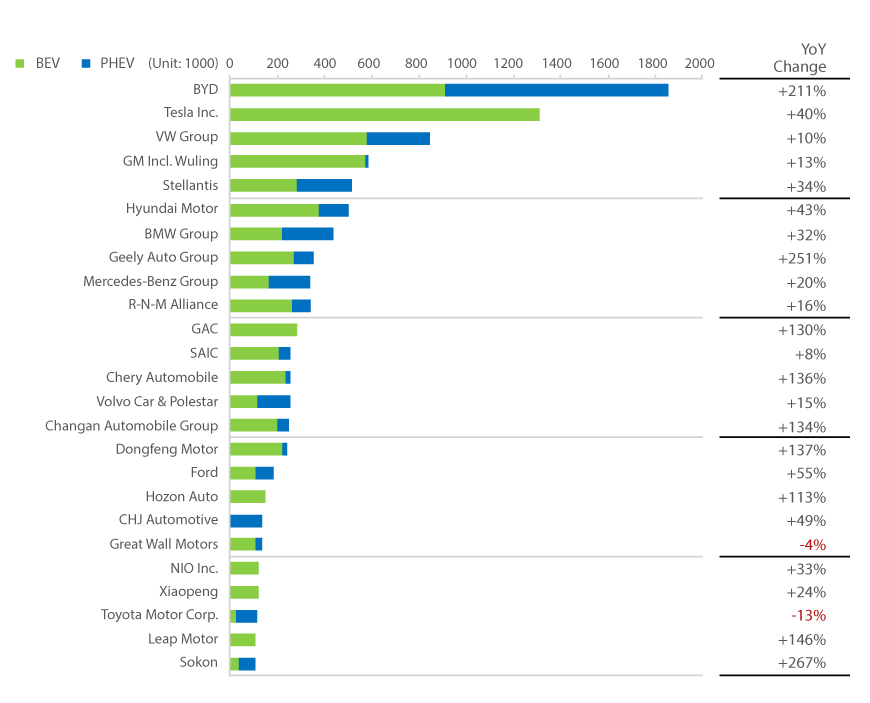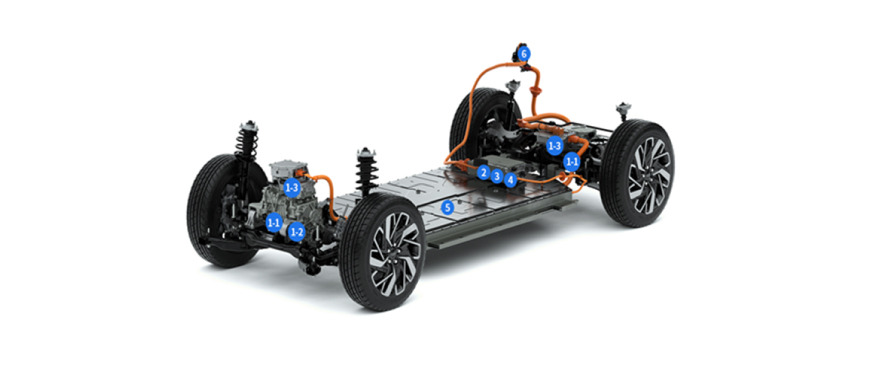- Home
- Investment Opportunities
- Latest Information
- Industry Focus
Industry Focus
- Auto parts

The Fast-Growing Korean EV Production and Sales
| Category | Production | Domestic Sales | Export | Export Share in Production (%) |
|---|---|---|---|---|
| PHEV(units) | 47,310 | 0 | 46,173 | 97.6 |
| BEV(units) | 348,895 | 123,676 | 220,507 | 63.2 |
| FCEV(units) | 10,804 | 10,336 | 400 | 3.7 |
| Total EV(units) | 407,009 | 134,012 | 267,080 | 65.6 |
| Total Auto Vehicles(units) | 3,757,049 | 1,395,111 | 2,300,333 | 61.2 |
| PHEV Share(%) | 1.3 | 0.0 | 2.0 | |
| BEV Share(%) | 9.3 | 8.9 | 9.6 | |
| FCEV Share(%) | 0.3 | 0.7 | 0.0 | |
| Total EV Share(%) | 10.8 | 9.6 | 11.6 |
* Source: KAMA
Korean Automaker Emerges as Global EV Maker
Korea plays an important role in EV development. The GM Technical Center Korea (GMTCK) played a leading role in the development of the GM electric vehicle Volt, and continues to cooperate with various entities in the development of GM electric vehicles. Ssangyong Motor develops and sells electric vehicles through cooperation with Chinese electric vehicle maker BYD. Renault Korea plans to develop electric vehicles in cooperation with Chinese automaker Geely.

Korea's Outstanding EV Parts and Charging Infra Supply System
Electric vehicles require a speed reducer, a thermal management system, and tires. The most important parts related to electric vehicles, such as batteries, motors, and inverters, are produced by existing electric industry-related companies. Existing auto parts makers are responsible for the control devices, cases, and assemblies that necessary to apply these major parts to automobiles. Batteries are brought from a battery cell manufacturer in the form of cells or modules, assembled in a pack form, and mounted on a vehicle together with a control system (BMS), various switches, electric current sensors, and cooling systems.

* Source: Hyundai Motor
The heat management system and air conditioning are handled by Hanon Systems, the heating system is produced by PCT heaters, and the air conditioner hose and coolant hose, which are major components, are produced by Hwaseung R&A. Hankook Tire develops and supplies tires suitable for electric vehicles, and SL is in charge of LED lamps used in electric vehicles. Korean parts makers supply electric vehicle parts to major global automakers.
- VW: Battery Cell (LG Energy Solution, Samsung SDI, SK On), Tire (Hankook Tire), E-Compressor & Thermal (Hanon System)
- GM: Battery Cell (LG Energy Solution), Drive Motor (LG Electronics), Converter, Inverter, ODC (LG Electronics), Head Lamp (SL), Tire (Hankook Tire)
Regarding electric vehicle charging, it can be divided into the charger manufacturing and charging business, and major companies operate both at the same time. Recently, leading Korean conglomerates have newly entered the electric vehicle charging business. Hyundai Motor Group aims to lead the charging market with its super-fast charging brand E-pit.
Regarding the charging business, LS Group established LS E-Link, and Hanwha Solutions launched Hanwha Motiv, an electric vehicle charging brand.
SK acquired Signet EV (SK Signet), a super-fast charger and solution provider, and GS Energy established GS-Connect, a joint venture with GENTEL, the second largest electric vehicle charging service in Korea. Lotte Information Communication entered the charging business market by acquiring a 71.14% stake in JAC, the second largest manufacturer of chargers. Major charger manufacturers such as Daeyoung Chaevi, Moderntech, and Everon received investment to prepare for competition.
조철( (chch@kiet.re.k))
산업연구원 선임연구위원










